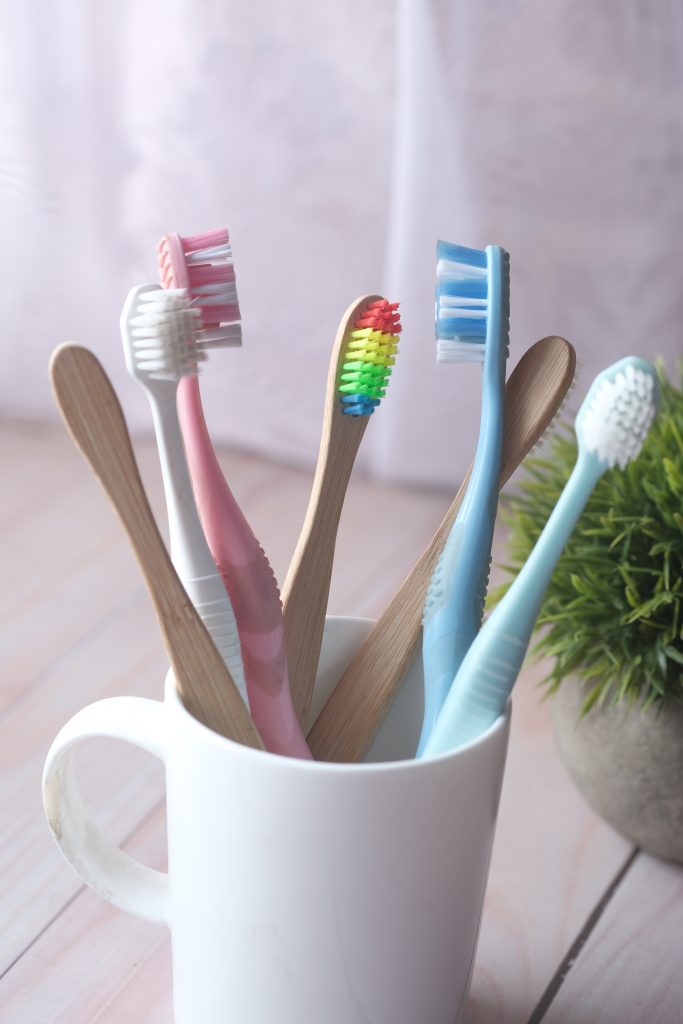
Halitosis, otherwise known as chronic “bad breath”, is an extremely common oral condition experienced by thousands around the globe. But, while it’s smelly reputation is well known, what many people may be unaware of is what causes bad breath. Many might be tempted to assume the condition is related to the food we eat, which is certainly true to an extent, but chronic bad breath can also be a sign of certain oral problems, some of which can be dangerous if left untreated. Since nobody wants (or enjoys!) stinky breath, here are some causes of halitosis, as well as some easy tricks you can implement today to help reduce the symptoms.
Symptoms of Bad Breath
The symptoms of bad breath can sometimes go further than a foul-smelling mouth. Often, people may also have a foul taste in their mouth, or other signs of oral issues such as gum soreness or tenderness, and swelling. When bad breath is partnered with these more serious complications, it may be a clear sign that it may be a bigger problem than poor oral hygiene.
Causes of Halitosis
Here’s a general list of what causes bad breath:
- Poor oral hygiene – Halitosis is often caused by a failure to properly care for our mouths, teeth, and tongues. This can be due to a lack of or improper brushing and flossing, poor dietary habits, use of tobacco and alcohol, or letting other oral conditions go untreated such as cavities, all of which contribute to growth of bacteria and lead to bad breath.
- Gum Disease – Certain gum diseases such as gingivitis and periodontitis can cause bad breath, and these conditions are often dangerous if left untreated. They’re usually caused by an excessive build-up of plaque on our gums and teeth, and can lead to tooth decay, tooth loss, and various infections.
- Dry Mouth – Xerostomia, or dry mouth, is a medical condition that may be a side effect of various medications, salivary gland problems, or continuous breathing through the mouth. Saliva works to moisten the mouth, neutralize acids found in plaque, and wash away dead bacteria cells, and when these don’t decompose, bad breath can quickly form.
- Diseases and Illnesses – Some diseases and common illnesses can contribute to bad breath, such as seasonal allergies, respiratory and sinus infections, yeast infections, post-nasal drip, diabetes, acid reflux, and kidney and liver problems.
- Dental Appliances – If someone has had implants, crowns, molds, veneers, or dentures added to their teeth, it may cause bad breath when these are poorly fit or designed.
- Open-Mouth Sleepers – People who sleep with their mouths open, and especially those who snore or have sleep apnea, may be prone to bad breath.
How to Fix Bad Breath
Knowing how to fix bad breath really comes down to preventative care, and addressing issues as soon as they arise. Committing to proper and healthy oral hygiene and dietary habits can not only help your breath, but your overall well-being. Avoid use of tobacco or excessive alcohol, as these don’t just contribute to halitosis, but cause some of the other, more serious complications. Standard oral hygiene habits to consider include brushing properly and thoroughly twice a day, flossing regularly, using mouthwash when needed, and scrubbing your tongue.
Another way to fix bad breath is through a more preventative, holistic approach to dentistry, which works to better your entire body along with your mouth and teeth.
Dr. Hank Barreto
As a leading provider of holistic dentistry in South Florida, the dental office of Dr. Hank Barreto is providing patients with exceptional general and restorative dental care. As a holistic dentist, Dr. Barreto finds it vital to approach oral health as an integral part of the body’s overall wellness.
If you’re looking for the best in preventative dentistry, contact us today to learn more about our services, or to schedule an appointment in our Miami or Coral Gables offices.
